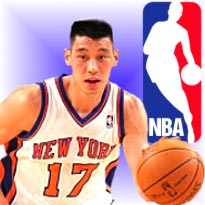 Every single one of us should have at least one week in our painfully uneventful lives that resembles the week just experienced by New York Knicks rookie point guard Jeremy Lin. The National Basketball Association’s first American-born player of Chinese or Taiwanese descent has made mincemeat out of opposing defenses in the Knicks’ last five games (all wins), including a 38-point performance against Lakers’ icon Kobe Bryant on Friday night in front of a wildly appreciative New York crowd. Lin followed that up Saturday with a 20-point performance against the Minnesota Timberwolves, shooting the game-winning free throw with 4.9 seconds left.
Every single one of us should have at least one week in our painfully uneventful lives that resembles the week just experienced by New York Knicks rookie point guard Jeremy Lin. The National Basketball Association’s first American-born player of Chinese or Taiwanese descent has made mincemeat out of opposing defenses in the Knicks’ last five games (all wins), including a 38-point performance against Lakers’ icon Kobe Bryant on Friday night in front of a wildly appreciative New York crowd. Lin followed that up Saturday with a 20-point performance against the Minnesota Timberwolves, shooting the game-winning free throw with 4.9 seconds left.
Lin’s remarkable run has come as a godsend for American sports media looking for interesting narratives to fill the post-Super Bowl void. Lin comes with a backstory that begs for an audience. A Harvard grad, Lin had gone undrafted in 2010, then signed with (and was subsequently released by) two teams before ending up with the Knicks two days after Christmas 2011. Lin was so unsure of his prospects that he’s been couch-surfing with friends and relatives rather than splash out on a place of his own.
Lin’s stock rose dramatically after coming off the bench on Feb. 4 to score 25 points against the New Jersey Nets. He was promoted to starter and immediately embarked on a three-game 89-point tear, the highest first-three-starts total since the 1976-77 merger of the NBA with the American Basketball Association. Cue headlines and memes like Lin-sanity, Lin-credible, etc. The fact that Lin appears to be a genuinely humble sort definitely won’t hurt his broad-based marketing potential, at home and abroad.
While basketball is a popular sport in Asia – and the second most popular betting sport after European football – there have only been four Asian players in the entire history of the NBA, a stat underscored by last year’s retirement of Yao Ming. Lin’s presence has reportedly convinced the NBA’s Asian TV partners to ramp up coverage of the Knicks, which will only increase both Lin’s and the game’s popularity among fans, bettors and (forgive us) on-Lin bookmakers (at least, those with an Asian presence).